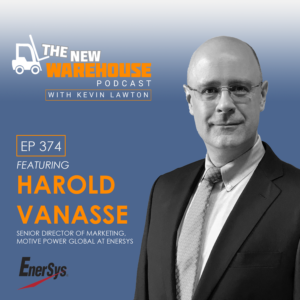
Episode 374: Sustainable Power Solutions – EnerSys
In this episode of The New Warehouse, Harold Vanasse, Senior Director of Marketing at EnerSys, joins Kevin at ProMat 2023.

In this episode of The New Warehouse, Harold Vanasse, Senior Director of Marketing at EnerSys, joins Kevin at ProMat 2023.
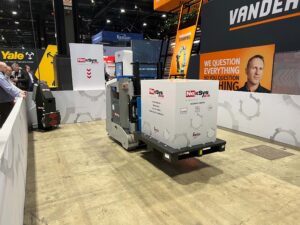
EnerSys® unveiled its NexSys® AIR wireless charger during a special, onsite press conference at ProMat 2023. As the latest solution
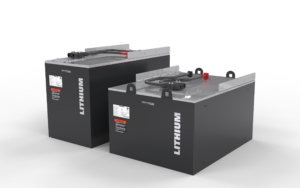
The new battery offers reduced maintenance, easy installation, and full integration with Raymond® chargers and telematics The Raymond Corporation has expanded

The global lithium-ion battery market size is projected to expand by over 18 percent between 2021 and 2030, compared to
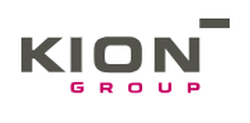
KION Group signs agreement with Li-Cycle, an industry leader in lithium-ion battery resource recovery Up to an overall 95 percent
As part of the ZAPI GROUP of companies charging experts, Delta-Q Technologies will educate attendees about on-board charging for Class
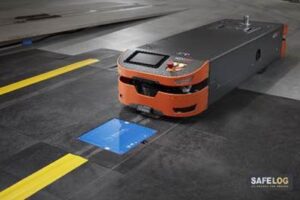
Wiferion, an energy solution supplier powering mobile robots and autonomous industrial vehicles through a wireless charging platform, has entered the
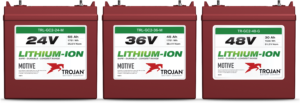
Trojan Battery Company teams up with two other industry powerhouses – Lester Electrical and Pack Mule – to showcase its lithium-ion batteries for

Resonant Link is a provider of wireless charging solutions for medical devices, industrial and material handling equipment, electric vehicles, and

One of South Africa’s leading chocolate producers switched to BSLBATT lithium-ion batteries to ensure uninterrupted multi-shift warehouse forklift operations in
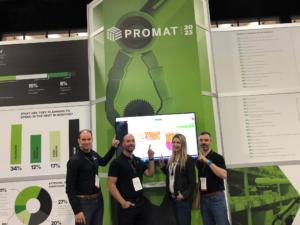
UgoWork™, a Canadian energy solutions provider specializing in lithium-ion batteries and Energy as a Service (EaaS) solutions in the material
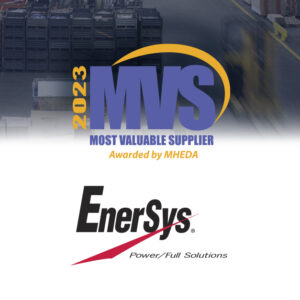
EnerSys®, the global provider of stored energy solutions for industrial applications, has earned the 2023 Most Valuable Supplier (MVS) Award
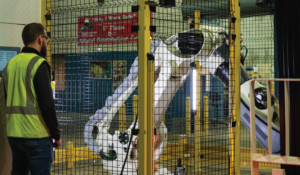
A faster and safer way to manage your power from the leader that invented GuaranteedPOWER® Concentric, an OnPoint Group Company,

Want a lithium-powered model that handles like a yard truck? Want a retrofit lithium battery for any forklift you have?
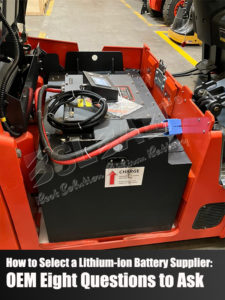
Making the Decision: Lithium-Ion Battery Supplier The lithium-ion battery market is in a state of flux. Lithium-ion is a relatively
OneCharge Inc., Garden Grove, CA, and Bluewater Battery Logistics, Santa Barbara, CA, has entered into a strategic partnership to recycle
As lithium-ion power becomes more common in material handling industries, companies providing the batteries are working through current supply chain

Electrification in the material handling industry, electrified equipment, and fleets, are not just ‘buzz’ words anymore as much as they
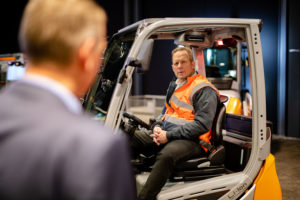
Intralogistics group begins production of hydrogen propulsion systems KION Group plans to invest more than €11 million in this technology
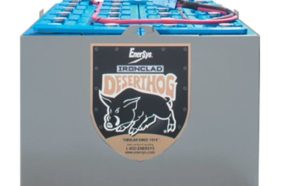
EnerSys®, a global provider of stored energy solutions for industrial applications, has announced that its 24-Hour Quick Ship Program for